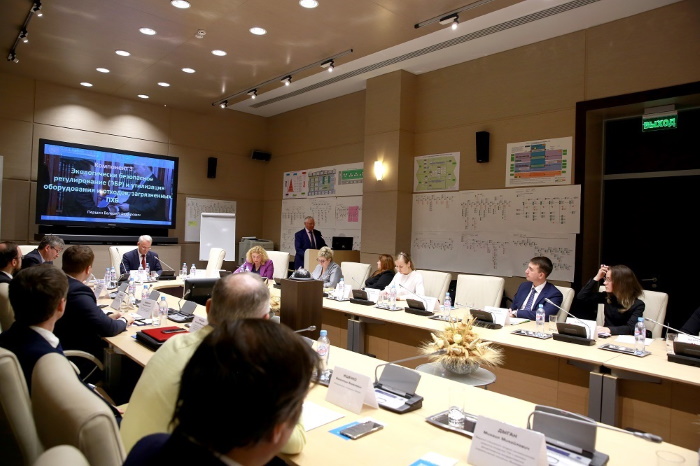2019-12-17
On December 13, 2019, the annual Steering Committee of the UNIDO / GEF project “Environmentally sound “Environmentally sound management and final disposal of PCBs at the Russian Railroad Network and other PCBs owners” (hereinafter UNIDO-RZD project) was held at the Center for Scientific and Technical Information of Russian Railways.
The main goal of the meeting was to present the results of the final stage of the Project, as well as to discuss mechanisms for implementing further activities and evaluating the results of interaction with interested parties.
Representatives of the Ministry of Natural Resources and Ecology of the Russian Federation, the Federal Service for Supervision of Natural Resources (Rosprirodnazdor), the Ministry of Energy of the Russian Federation, and the Ministry of Foreign Affairs of the Russian Federation attended the meeting. Representatives of Russian Railways JSC, FSBI “Russian Energy Agency”, National Coordination Centre of Stockholm Convention on POPs, SUE “Vodokanal of St. Petersburg”, NEFCO, “Rusatom Greenway” LLC, “NPO Decanter LLC” took part in the event as well.
NPO Decanter LLC took part in the meeting as the only Russian manufacturer of equipment for the purification of transformer oils from polychlorobiphenyls.
During the meeting, all participants noted the importance of the task of eliminating PCB stocks in Russia, the relatively short time allotted for these activities by the National Plan for the Elimination of POPs, and the undoubted positive dynamics that the UNIDO project “Environmentally Sound Management and Final Destruction”.
The participants noted a number of factors characterizing the current situation in the field of elimination of PCBs in Russia. A number of them cause certain optimism:
- Significant increase in the awareness of the population, state authorities and business leaders about the seriousness of the PCB problem and the importance of solving it in a timely manner;
- Appearance of the opportunity for owners of PCBs to include measures to eliminate them in their investment programs;
- The beginning of the PCB waste inventory process on an initiative basis, “on the ground”;
- Awareness by PCB owners and authorities of joint responsibility for the implementation of measures provided for by the Stockholm Convention and the National Plan for the Elimination of POPs;
- The presence in Russia of its own technologies for the analysis and destruction of PCB waste.
However, as in any serious problem, there are negative points that speak of the insufficient pace of implementation of the National Plan:
- Insufficient pace of elaboration of the legislative base in the field of regulation of the management of POPs;
- The practical absence (only 2 organizations in the country) of accredited laboratories capable of analyzing PCBs in transformer oils;
- Lack of interest among potential owners of PCB wastes in speeding up the process of their identification and inventory;
- Incorrect assessment by waste owners of their quantity and composition.

All news



